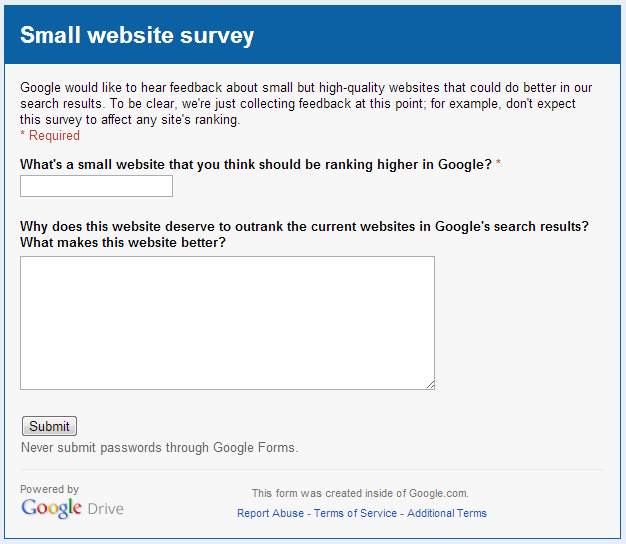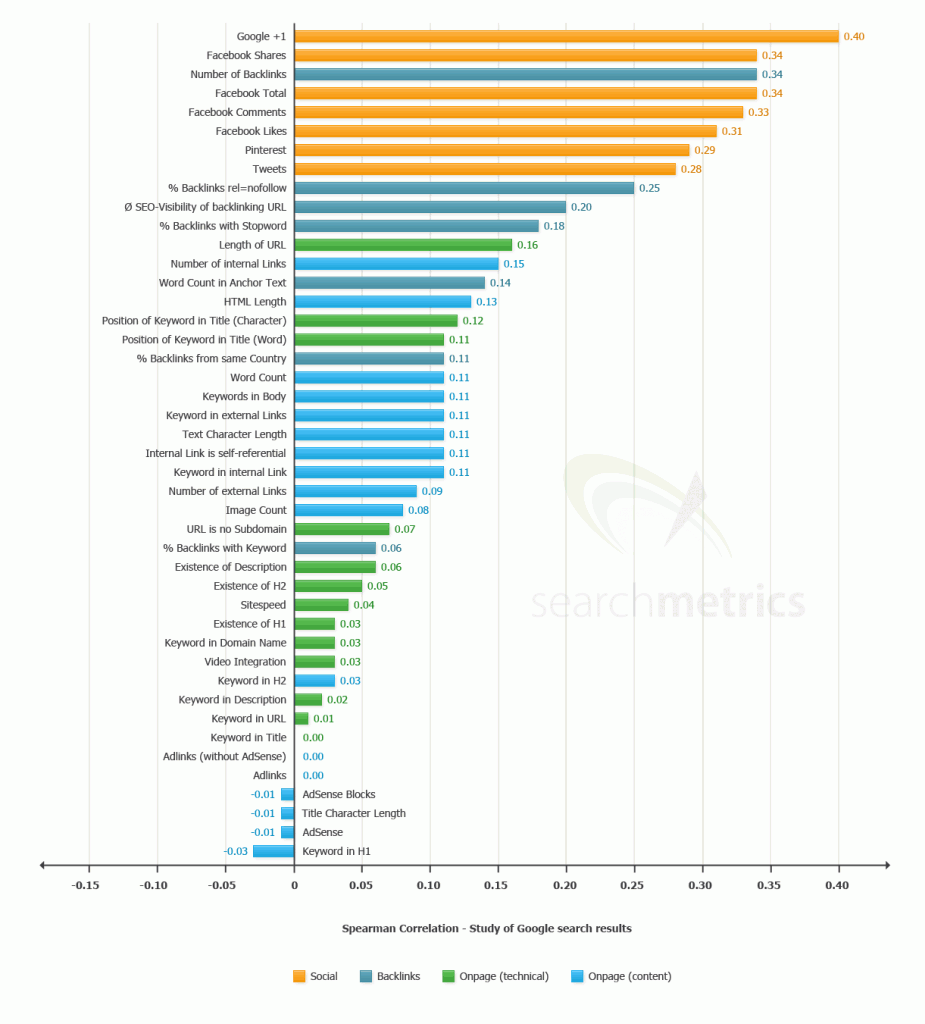Some very interesting news for you: Google is collecting more data about websites in a more old-fashioned way.
Yesterday, Matt Cutts’ tweet sent the entire online industry abuzz. He posted a Google Docs link to a survey asking what small site you think should be ranking better on Google. See Cutts’ tweet below:
If there’s a small website that you think should be doing better in Google, tell us more here: https://t.co/s80BibIBhN— Matt Cutts (@mattcutts) August 28, 2013
Big Sites vs. Small Sites
The survey is a simple two-question survey wherein they ask you to mention a smaller site you think should be ranking better on the SERPs, and then ask you to explain what makes it a high-quality site and why it should rank higher. This addresses a long-standing issue with the SEOs, site owners, and Google alike: the question of website size.
Bigger websites seem to dominate Google SERPs, and this has been a long-standing debate among SEOs. This survey is expected to give Google better insight on rating websites to give the smaller but higher-quality ones a chance to be visible on the SERPs. It’s important to note, however, Google’s disclaimer at the top of the form:
To be clear, we’re just collecting feedback at this point; for example, don’t expect this survey to affect any site’s ranking.
Overnight, many SEOs and website owners expressed how this kind of form would attract spam from online marketing representatives and fellow SEO specialists. But while this could attract thousands upon thousands of spam answers, it could also hold a few answers for Google to give big and smaller sites a more level playing field when it comes to SERPs rankings.
Ranking for the SERPs
In the meantime, you’ll have to consider the different ranking factors affecting the placement of smaller websites on the SERPs. Search analytics technology developer Searchmetrics identified these ranking factors in their study “SEO Ranking Factors – Rank Correlation 2013 for Google USA.” Here are the highlights:
- Social signals are gaining power in improving your rankings.
Seven out of the top ten signals correlated to higher rankings are social signals. These include Google +1s, numerous Facebook activities, Pinterest and tweets. Boosting your social media marketing strategy is more important than ever before.
- Backlinks continue to be a very important ranking factor.
While the number of backlinks you have continues to be an important ranking factor, the quality of your backlinks is rising in value as well. Things like backlinks with the rel=nofollow attribute, anchor text word count, and percentage of backlinks with keywords are only some of the factors that can affect your campaign rankings.
- On-page optimization is a basic requirement, not a booster.
Optimizing on-page elements is important not because it gets you ranking higher, but because it gets you ranking, period. It has always been a basic requirement for getting indexed and ranked on the SERPs. As Searchmetrics mentions, “it seems to be fulfilling certain on-page criteria is not about achieving a favorable ranking, rather, it is the opposite: it is simply negative for the rankings when web pages do not meet criteria.”
- Content quality is always important.
The reason you’re reading this everywhere is because it’s true, now more than ever. Individually, these factors pertaining to content quality may not mean much compared to social signals, but collectively, they make up majority of the factors correlated to improved rankings.
Talk to your account manager today to discuss the most appropriate SEO strategy for your campaigns, especially if you’re trying to rank smaller niche websites.
I hope you get something good out of today’s discussion. Keep checking back for more updates, and remember to sign up to become our partner to get all our awesome solutions!





